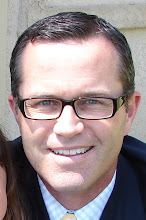Fortunately her seizures were small and with none of the frightening side-effects so many people with epilepsy live with every day. That said, it became clear pretty quickly that her episodes were impeding her development - consider how long it takes you to do or learn anything when you are constantly being interrupted - and so we found ourselves in the world of neurologists, sleep-deprived MRIs (super fun!) and medications we were told "aren't really meant for small children but are the best we have to offer."
At age three our daughter qualified for support from the local school district to work on her speech and language delays. We found ourselves in another new world, the bureaucracy of county and state-funded support services. It took us awhile to sort things out as these resources aren't exactly well-published and once you get started it takes persistence and curiousity to successfully navigate the landscape.
We learned that the centerpiece of any support is a learning contract called an Individual Education Plan (IEP). At the outset of services and on an annual basis thereafter all the stakeholders in our daughter's education, depending on the specific types of support she needs, weigh in on both her progress and on new goals to be established for the coming year. It is a laborious, time-intensive and slow process. And, it works. We had a two-hour meeting yesterday to discuss our daughter's transition to kindergarten. It was a thorough and detailed look at her progress over the last year as well as an opportunity to discuss the best environment and services to help her "access her education" (my newly adopted IEP lingo) in the year ahead.
At an emotional level, these are very hard discussions to have. We, like every other parent we talk to, want our daughter to be "normal." We want to save her from the labels and categorization that are so easily attached and so difficult to remove. That said, I feel extremely blessed that we have people in our lives who want to help her overcome and succeed. That there is a system in place, cumbersome though it may be, dedicated to her development. It was in the middle of that thought in the middle of this meeting that it became painfully clear to me why it's so hard to get development right in our organizations. Processes and initiatives that are slow, involve a lot of people and require complete individualization for greatest impact aren't exactly welcome in the private sector.
That said, if we really want to help our managers manage effectively and our leaders lead with purpose and passion, we need to get intense, individualized and involved in learning plans that create real goals with real outcomes for real impact. No, bureaucracy is not the answer but neither is the excuse that business moves too fast for us to take the time to do the real work required for learning, development and change to occur.
Here's a recipe for your consideration:
Mindset: Go Slow to Go Fast
- Involve the right people - who has perspective and feedback that needs to be considered?
- Write a plan - focus on strengths, gaps and the full context of business needs
- Track progress - stay in the conversation over time
- Revise and renew - keep the plan relevant to individual and business changes
- Review progress and do it again

One of my best friends has been dealing with IEPs for the past 15 years.
ReplyDeleteHer nephew, Ryan, is both blind and developmentally disabled. He lives with her and attends Perkins School for the Blind in Watertown, MA.
When I told Jackie about this article, she said, "Please tell them one of the most important---and effective---words to use is ENTITLED."
Ryan and Avery are entitled to the education and activities and opportunities available to every child.
You're right. It's a very slow and exhausting process. At least there is something in place, something that may someday serve kids better.